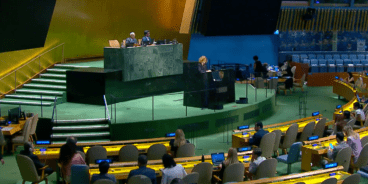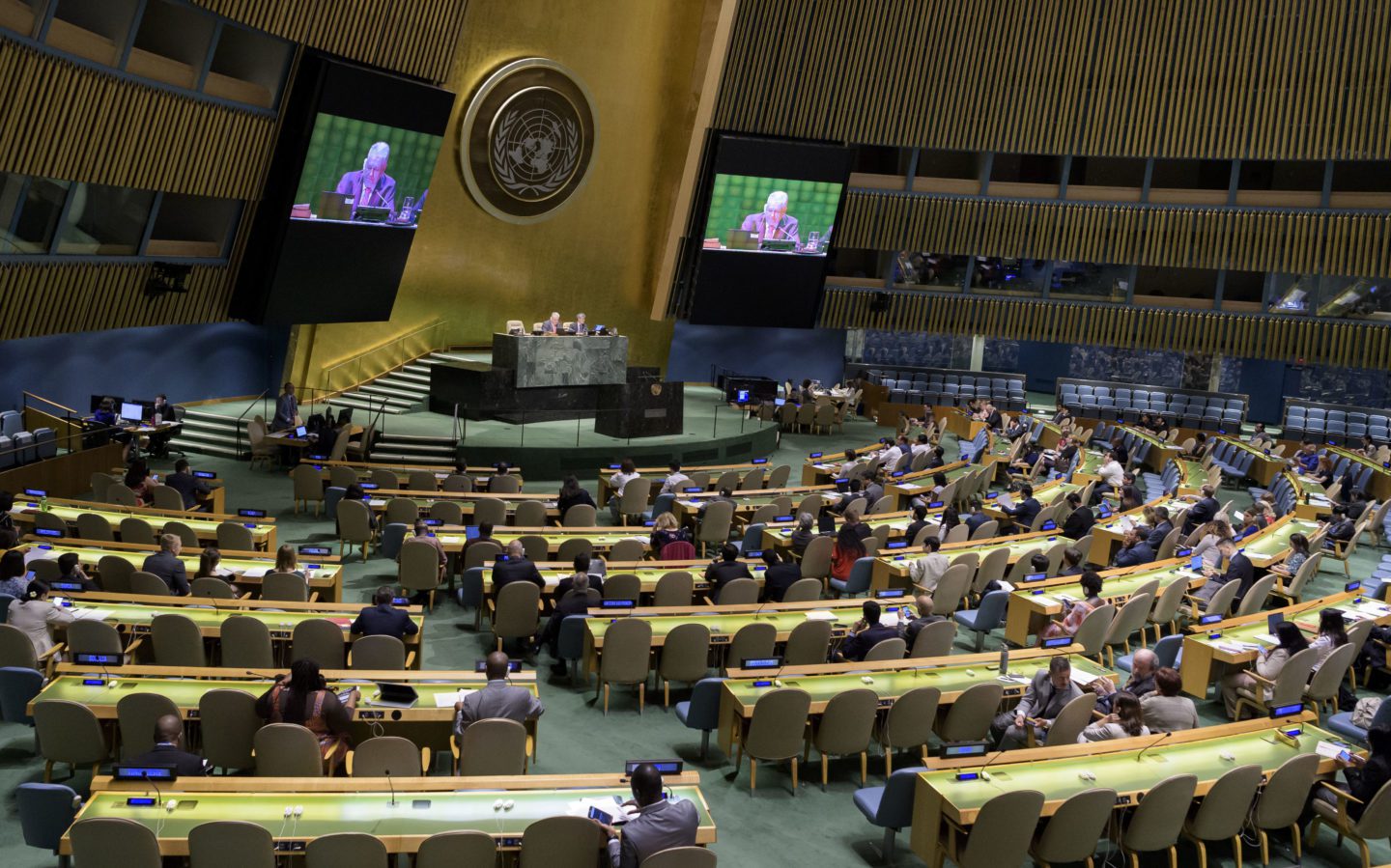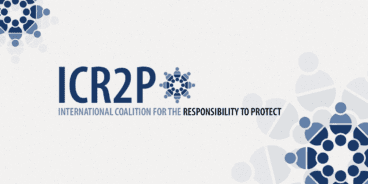United Nations General Assembly holds Eighth Informal Interactive Dialogue on the Responsibility to Protect
On 6 September 2016 the UN General Assembly held a successful Informal Interactive Dialogue on the Responsibility to Protect (R2P). The Interactive Dialogue addressed the UN Secretary-General’s eighth annual report on R2P, entitled “Mobilizing Collective Action: The Next Decade of the Responsibility to Protect.”
During the dialogue 68 member states and the European Union delivered statements on behalf of 93 states. The Netherlands delivered a statement on behalf of 49 members of the Group of Friends of R2P. Several countries, including Jamaica and Fiji, spoke for the first time at an R2P interactive dialogue. In addition to member states and the European Union, four civil society organizations, including the Global Centre for the Responsibility to Protect, delivered statements.
H.E. Mr. Mogens Lykketoft, President of the UN General Assembly, opened the dialogue, followed by introductory remarks from UN Deputy Secretary-General Jan Eliasson who celebrated R2P as a signature achievement of the UN and asserted that, “the time has now come to seriously counter and confront crisis and potential crisis situations. There are millions of people looking to the UN for help in a time of dire need, conflict and distress. In the name of humanity and in the spirit of the UN Charter, we must not fail them.”
A panel of experts, including the Special Adviser on the Prevention of Genocide, Mr. Adama Dieng, and two former Special Advisers on the Responsibility to Protect, Dr. Edward Luck and Dr. Jennifer Welsh, presented their perspectives on the key messages in the Secretary-General’s report.
The majority of member states indicated the need for the UN Security Council to observe a code of conduct with regard to mass atrocity situations. A number of participants underscored the importance of ensuring that R2P and mass atrocity prevention remain a priority under the next Secretary-General. While a minority of states challenged application of the principle of the responsibility to protect, the discussion was largely positive with many states indicating their support for placing R2P on the formal agenda of the UN General Assembly and for a General Assembly resolution on R2P.
Member states expressed concern for populations around the world who continue to endure war crimes, crimes against humanity, genocide and ethnic cleansing as a result of our collective failures to implement the responsibility to protect. Member states further highlighted the erosion of respect for international humanitarian and human rights law, condemning impunity for crimes committed against populations in Syria, South Sudan, Central African Republic and elsewhere.
Dr. Simon Adams, in his statement on behalf of the Global Centre for the Responsibility to Protect, emphasized that, “the fact that 65 million people across the world are currently fleeing conflict, atrocities and persecution, reflects a collective failure to adequately protect vulnerable populations in Syria, South Sudan and elsewhere.”
Dr. Adams asserted that despite remaining challenges in implementing the responsibility to protect, “the era of silence and indifference in the face of mass atrocities has ended … it is up to the people and the states represented in this room to consistently uphold their responsibility to protect, and to act where ever and when ever people face the threat of barrel bombs, the machete or the mass grave.”
Read Next
Related Content

Summary of the 2024 UN General Assembly Plenary Meeting on the Responsibility to Protect

